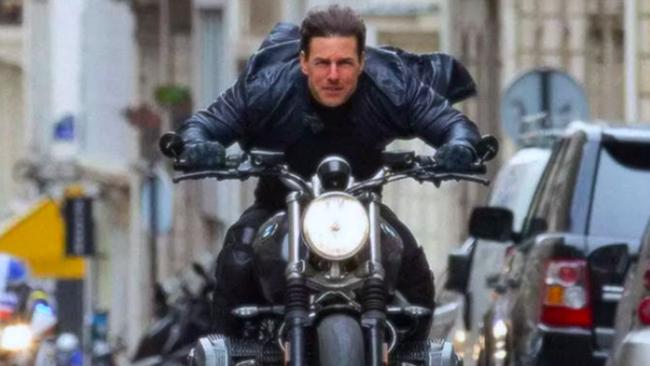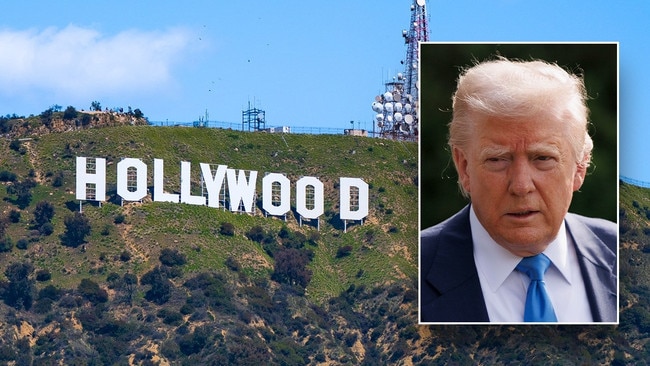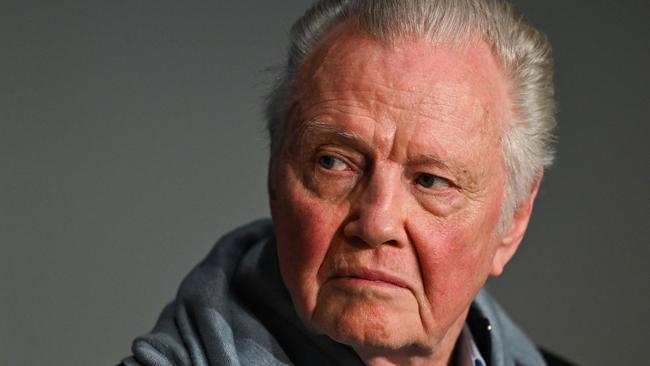Hollywood wanted Trump to bring movie-making back to the US but not like this
Jon Voight meet Donald Trump last weekend to plead for help in stemming the exodus of film and TV production to other countries – 100 per cent tariffs wasn’t what he asked for.

Hollywood has been pleading with politicians for years to help stem the exodus of film and TV production to other countries. This weekend actor Jon Voight met with President Trump to make the case.
The president’s call for 100 per cent tariffs on imported movies – which he issued in a social-media post Sunday – isn’t what Hollywood had in mind.
Entertainment-industry executives expressed confusion over how a levy could be applied to intellectual property with no specific monetary value. They said they feared retaliatory tariffs could damage their business overseas, where big-budget movies often earn most of their box-office receipts. Shares in Disney, Netflix and other media companies and movie-theatre chains fell Monday.

More moves out of Washington could be coming. Voight said in an interview Monday that the tariff announcement was “the beginning, perhaps, of changes that will be effective” and indicated there might be more to Trump’s plan.
“There’s a little bit for us to wait on,” he said. Trump met last weekend at his Florida club, Mar-a-Lago, with Voight, his manager Steven Paul and Paul’s business partner Scott Karol. The president later read up further on the issue, people familiar with the matter said.
Many in Hollywood would like to see the federal government offer tax incentives that make the US more competitive with rival countries.
The International Alliance of Theatrical Stage Employees union, which represents most behind-the-scenes craftspeople in Hollywood, asked the Trump administration Monday to implement a federal movie-production tax-incentive program.

Camera operators, make-up artists and other crew members have seen job opportunities in the US shrink for years because other countries offer generous tax incentives and have lower labour costs, motivating studios to produce films and TV shows there.
The theatrical stage employees union said its members had lost tens of thousands of jobs in the US in the last two years.
The majority of big budget Hollywood movies are now shot overseas to take advantage of tax breaks, according to people who have worked at studios.
This year’s highest grossing film, “A Minecraft Movie,” was shot in Canada. The next Mission: Impossible sequel, which comes out Memorial Day weekend, was shot entirely in the United Kingdom and other foreign locations.
Voight, 86 years old, who has starred in such movies such as “Midnight Cowboy” and “National Treasure,” has been one of Trump’s main advisers on returning production to the US Trump named him a “special ambassador” to Hollywood in January.
Voight discussed with Trump crafting a federal policy that would give film-production companies tax incentives to conduct more of their business in the US, according to people familiar with the matter.
Voight, Paul and Karol proposed to Trump that he bring productions back to Hollywood through policies including federal tax incentives and infrastructure subsidies. They said tariffs should only be used “in certain, limited circumstances,” according to a statement they released Monday.
Trump, while flying on Air Force One, later read through news articles about how certain production companies conduct some of their business in foreign countries, according to a person familiar with the matter.
Trump later posted on Truth Social his plans for tariffs on foreign films that are seen in the US
“We’re going to meet with the industry, I want to make sure they’re happy with it, because I’m all about jobs,” Trump said Monday in the Oval Office. He didn’t say when tariffs would be implemented or how, and a White House spokesman said no final decision on foreign film tariffs had been made.
For most of the 20th century, American movies were shot primarily in Los Angeles, where century-old studios and new streaming companies remain based. Over the past few decades, however, generous tax breaks have motivated film and TV companies to shoot wherever costs are lowest.
Countries like the U.K. and Canada essentially subsidise every dollar spent there to hire cast and crews, rent stages and do visual-effects work. A growing number of movies are also being shot in regions such as Eastern Europe with lower personnel costs.
London has become a thriving hub for Hollywood productions, because of its tax incentives, extensive infrastructure including large soundstages and English-speaking crews.
Disney’s Marvel Studios is shooting a pair of coming Avengers sequels there. The total amount of money spent last year on film and television productions in the US with budgets of more than $40 million fell 26% from two years earlier, according to research firm ProdPro. It rose during that period in the U.K. and Canada, though neither market has yet caught up to the US
Several US states, meantime, dangle their own production tax breaks. Among them is Georgia, where the recently released Marvel film “Thunderbolts” was shot.
As a result, the number of days that films, television shows and commercials shot in Los Angeles during the first quarter of this year dropped 22.4% from the same period last year.
Democratic California Gov. Gavin Newsom has called for expanded tax incentives to bring more productions back to Hollywood’s home state.
Voight said he was at work on numerous plans to boost US film production, though he declined to offer specifics.
“The president cares a great deal about the people suffering in Hollywood,” he said.
Dow Jones



To join the conversation, please log in. Don't have an account? Register
Join the conversation, you are commenting as Logout